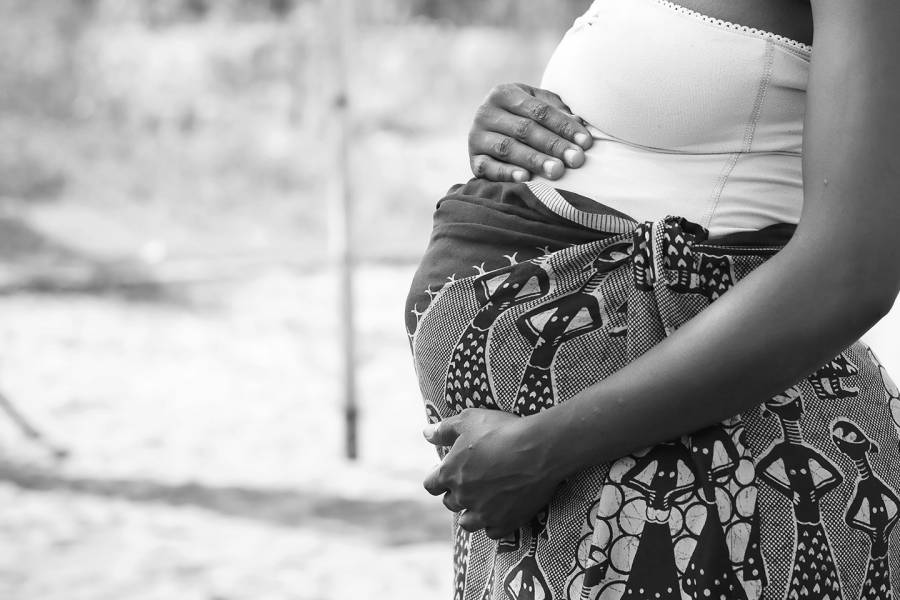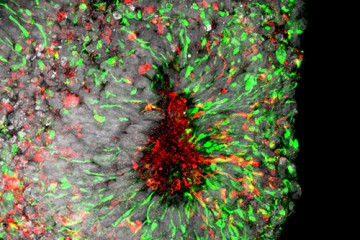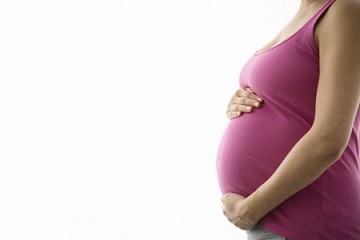- Name
- Jamie Smith
- jsmit449@jhu.edu
- Office phone
- 410-614-5381
- Cell phone
- 410-245-1106
As health care responders battle the ongoing Ebola outbreak in the Democratic Republic of Congo, one highly vulnerable group is being denied a potentially life-saving vaccine: pregnant and lactating women.
In a recent UNICEF report, pregnant women in the DRC clearly stated that they wanted to choose whether to be vaccinated or not. As one woman said in an interview, "Now there is no option, you just send us to death."
The exclusion of pregnant women from available vaccination efforts has been apparent in other recent epidemics, as well. Outbreaks of Zika, Lassa fever, and hepatitis E have shown how infectious disease outbreaks can severely—and at times uniquely—affect the health of pregnant women and their children. Yet despite this population being at significantly higher risk of serious disease and death, vaccines against such diseases are rarely developed and approved for them.
A multidisciplinary international team of 17 experts has released a new report outlining 22 recommendations for changing institutional and government practices that keep pregnant women from receiving vaccines during an epidemic. The report aims to ensure that pregnant women are no longer excluded from receiving vaccines against emerging infectious diseases.
The team, the Pregnancy Research Ethics for Vaccines, Epidemics, and New Technologies Working Group, or PREVENT, is led by experts at Johns Hopkins University and includes investigators from Georgetown University and the University of North Carolina at Chapel Hill.
"The self-perpetuating cycle of excluding pregnant women from research and from the benefits of vaccination must end," said Carleigh Krubiner, an associate faculty member with joint appointments in the Johns Hopkins Berman Institute of Bioethics and the Center for Global Development, and a lead author of the report. "With global efforts now underway to develop a range of vaccines against devastating epidemic threats, we have to make sure pregnant women are on the agenda, so they will never again be left unprotected in the face of future outbreaks."
The report recommendations include:
- During an epidemic, the default should be to offer vaccines to pregnant women.
- Vaccines that can be safely given to pregnant women need to be developed. For these vaccines, evaluation in pregnancy needs to occur as early in the clinical development process as possible.
- During an epidemic, decisions about whether pregnant women will be offered vaccines should consider not only any potential risks of the vaccine but also, and importantly, the risks pregnant women and their babies face if vaccine is denied.
- All decisions about inclusion or exclusion of pregnant women should be informed by those with the relevant expertise in maternal and neonatal health as well as in vaccinology and virology.
- The perspectives of pregnant women themselves should inform vaccine research and deployment decisions that may mean life or death for them and/or their babies.
"The way we have treated pregnant women in vaccine research and deployment is utterly unacceptable," said Ruth R. Faden, a lead author of the report and founding director of the Berman Institute. "Business as usual cannot be permitted to continue. Ensuring that pregnant women affected by outbreaks have safe and effective vaccines is not only a matter of justice and health equity; it's also critical to the public health response."
Added Ruth A. Karron, director of the Center for Immunization Research and the Vaccine Initiative at the Bloomberg School of Public Health: "We simply can't continue to fail pregnant women as we develop new vaccines against emerging threats. We need to generate an evidence base for safe and effective use of these vaccines during pregnancy."
Posted in Health, Politics+Society
Tagged berman institute of bioethics, vaccines, infectious disease, pregnancy










